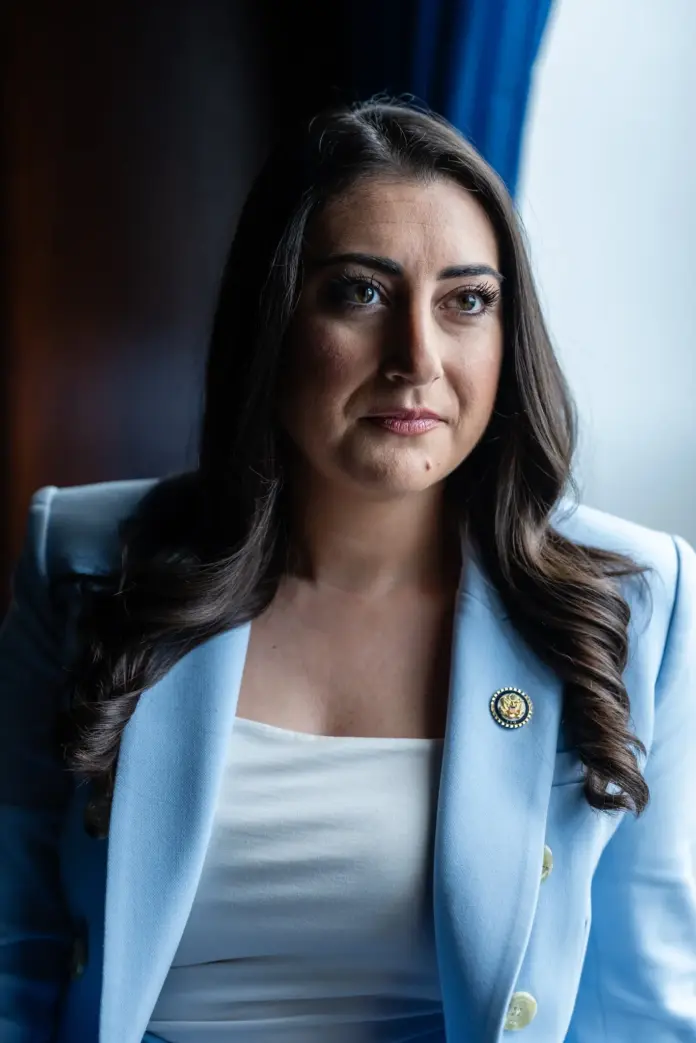
Two senior United States lawmakers have strongly condemned former President Donald Trump’s recent threats to cut off aid to Nigeria and consider possible military action in the country.
The lawmakers—Representative Gregory W. Meeks, Ranking Member of the House Foreign Affairs Committee, and Representative Sara Jacobs, Ranking Member of the Africa Subcommittee—issued a joint statement criticizing Trump’s comments as “irresponsible” and “dangerous.”
Their statement came after Trump, during a recent political event in the United States, vowed to halt all assistance to Nigeria and warned that the U.S. could intervene militarily if violence against Christians continued.
In their response, Meeks and Jacobs said the former president’s comments were based on a “distorted” understanding of Nigeria’s complex security situation.
“The Trump administration’s designation of Nigeria as a Country of Particular Concern ignores the complex reality of violence there,” they said.
According to the lawmakers, the conflicts in Nigeria are not solely religious. They explained that violence between farmers and herders is driven largely by “resource scarcity and land competition,” rather than religion.
“Clashes between farmers, many but not all of whom are Christian, and herders are driven by resource scarcity and land competition, not religion alone. Terrorist groups have killed both Christians and Muslims, and devastated communities—especially in the predominantly Muslim north,” the statement added.
They further warned that threatening military intervention under the guise of defending Christians was “a reckless response” that could drag the United States into another conflict.
“It is incredibly irresponsible of President Trump to threaten military action. Providing security support is one thing; threatening military intervention to ‘defend Christians’ is a reckless response to distorted facts which risks embroiling the United States in another war,” Meeks and Jacobs stated.
Nigeria, Africa’s most populous country, has been facing multiple security challenges for years.
In the northeast, the Boko Haram insurgency, which began in 2009, has killed tens of thousands and displaced millions. The extremist group, along with its splinter faction, the Islamic State West Africa Province (ISWAP), has targeted both Muslims and Christians in deadly attacks.
In central and northwestern Nigeria, clashes between farmers and herders have escalated due to competition over land and water resources, which have become scarcer as a result of desertification and population growth. These conflicts have often taken on religious and ethnic tones, further complicating peace efforts.
In recent years, “bandit” groups have also emerged in the northwest, attacking villages, kidnapping for ransom, and terrorizing communities. Many analysts say these armed groups are driven by poverty, unemployment, and weak law enforcement, rather than religious motivations.
President Bola Tinubu, who took office in 2023, has promised to address insecurity through economic reforms, better coordination among security agencies, and community engagement. His administration has also emphasized the importance of unity among Nigeria’s diverse religious and ethnic groups.
The United States is one of Nigeria’s key international partners. For decades, Washington has provided support in areas such as public health, education, agriculture, and security.
Through programs like USAID, the U.S. has invested millions of dollars to improve healthcare, strengthen democratic institutions, and promote economic growth in Nigeria. The U.S. has also assisted the Nigerian military in counterterrorism operations against Boko Haram and ISWAP.
However, Meeks and Jacobs pointed out that Trump’s past policies had already harmed these efforts.
“Trump’s aid cuts have blocked much-needed emergency nutrition and livelihoods training—the very types of programs essential to stopping the spread of insurgency,” the lawmakers said.
Aid experts say that reducing U.S. assistance to Nigeria could worsen poverty and insecurity. Many of the programs targeted by Trump’s earlier budget cuts were designed to help vulnerable communities recover from conflict and prevent young people from joining extremist groups.
Some Christian groups in the country welcomed his comments, saying international attention is needed to stop attacks on Christian communities. Others, however, criticized the former U.S. president for oversimplifying the issue and potentially worsening tensions.
Observers say Trump’s comments could damage U.S. relations with Nigeria, one of its most important allies in Africa.
During his presidency, Trump was often accused of neglecting African affairs and making controversial remarks about the continent. His administration’s decision in 2020 to place Nigeria on a travel ban list also strained ties between Washington and Abuja.
In contrast, the Biden administration has sought to rebuild relations with African countries. The U.S.-Africa Leaders Summit held in Washington in December 2022 was part of an effort to renew diplomatic and economic engagement with the continent.
Meeks and Jacobs’ statement reflects a broader push among U.S. lawmakers to promote a more balanced and informed approach to Africa.
“Foreign policy should be based on facts and respect, not fear or political gain,” said a congressional aide familiar with the lawmakers’ views. “Nigeria is a vital partner in promoting peace and development in West Africa, and reckless threats only undermine that partnership.”
Both Meeks and Jacobs emphasized that the United States should continue supporting Nigeria through diplomacy, development aid, and partnership, not through threats or force.
“All Nigerians deserve protection, and we know President Tinubu recognizes the importance of interfaith harmony and is working to address this challenge,” their statement noted.
They urged Washington to maintain cooperation with Abuja in fighting terrorism, strengthening democratic governance, and promoting interreligious understanding.
As Nigeria continues to face serious security, economic, and humanitarian challenges, many experts agree that sustained collaboration—not confrontation—is the way forward.

